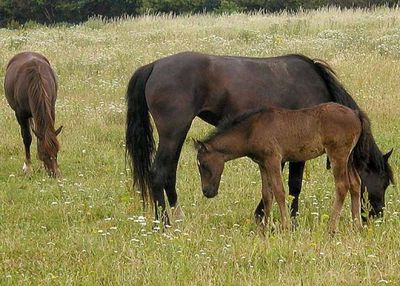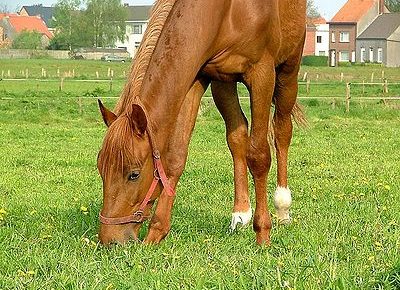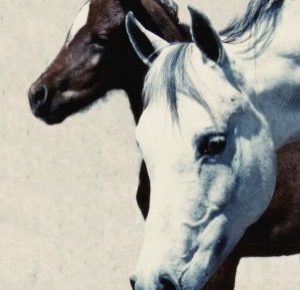While rare, spider bites to horses do occur and they are toxic and can cause much pain.
Usually the culprits are the black and brown widow spider and the brown recluse with all their relatives.
A bite from the black widow spider can cause a serious reaction in a horse. The latrotoxins which are poisonous proteins, especially those released by the female, interfere with the signals between nerves and muscles. A bite from a black widow spider is 15 times more toxic than rattlesnake venom.
The brown recluse spider bite cause a necrotic reaction in the bite area. It can progress into an open wound, tissue loss and a secondary infection.
A horse may exhibit these symptoms after a spider bite: elevated heart and respiratory rates, sudden painful swelling, high fever, fluid oozing at the bite area, lameness. These are signs of infection, inflammation or cellulitis (a spreading bacterial infection of the skin and tissues beneath the skin).
Your vet will examine the horse to rule out abscess or bone fracture. Treatment for the bite includes prescribing NSAIDs, (non-steroidal anti-inflammatory drugs), analgesics, a course of antibiotics, intramuscular tetanus injection and if dehydrated, intravenous fluids.
Particularly in cold weather, these spiders seek warmth and will find shelter in a barn. Check your horse’s quarters regularly for any unwanted creatures.



